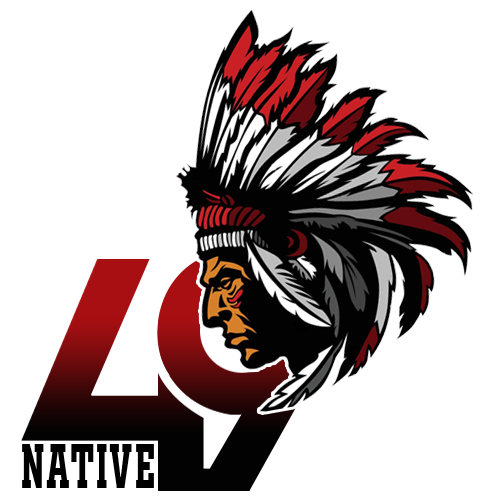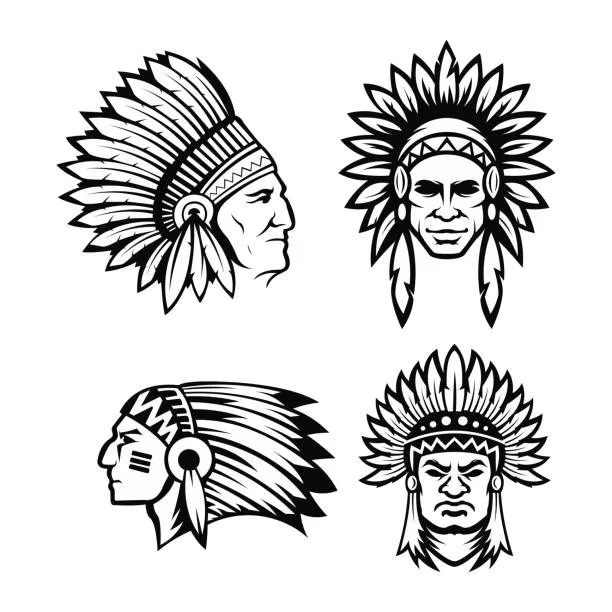Tattoos have long been a way for individuals to express their identity, beliefs, and heritage. Among the vast tapestry of tattoo traditions, Native American tattoos for men stand out as powerful and deeply symbolic expressions of cultural pride and strength.
In this exploration, 49native delve into the world of Native American tattoos for men, uncovering the rich history, meaningful symbols, and the profound connection between these tattoos and the men who wear them. Whether drawn to the heritage of Native American cultures or seek to embrace the strength and significance of these tattoos, this journey promises to be a fascinating one.
What does a Native American tattoo mean?
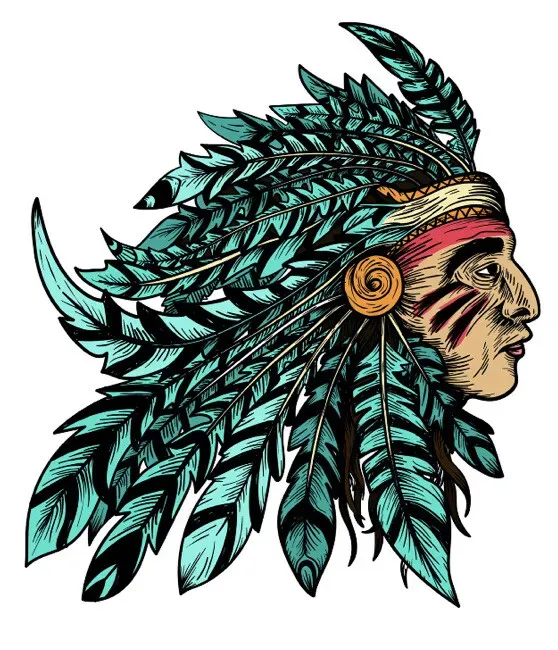
Are tribal tattoos Native American?
Native American culture is steeped in a profound belief in the spirit world, and one of the most captivating ways they express this connection is through the art of tattoos. Animal tattoos, in particular, hold a special place in their hearts as they often serve as representations of an individual’s spiritual animal guide.
While wolves are among the most prominent, a diverse array of animals, including falcons and bears, find their place in this spiritual tapestry. Join us on a journey through the captivating world of Native American animal tattoos, where bold designs, dreamcatchers, and totem poles converge to create a potent symbol of protection and identity.
The Spiritual Bond: Animal Tattoos as Spiritual Guides
In Native American culture, the spiritual world and the physical world are intimately intertwined. Many individuals believe that animals possess unique spiritual qualities and can act as guides in their lives. These animal guides are seen as protectors and sources of wisdom. As a result, animal tattoos are not merely decorative but serve as a powerful connection to the spiritual realm.
Wolves: The Dominant Spiritual Guardian
Wolves, majestic and enigmatic, hold a prominent place in Native American symbolism. They are often revered as powerful spirit animals, representing qualities such as strength, cunning, and unity.
Wolf tattoos are not only aesthetically striking but also carry deep spiritual significance. Many Native Americans believe that having a wolf tattooed on their skin brings them closer to the wisdom and guidance of this revered creature.
Falcons: Soaring Towards Freedom and Vision
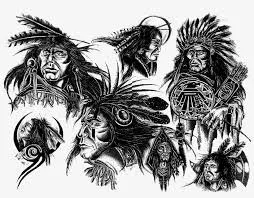
The falcon, with its ability to soar to great heights and keen vision, symbolizes freedom and a clear perspective. Falcon tattoos are chosen by those who seek to embrace these qualities in their lives. For many, the falcon represents the pursuit of higher truths and the freedom to explore new horizons.
Bears: Embodying Strength and Resilience
Bears are celebrated for their immense strength and resilience, qualities highly regarded in Native American culture. A bear tattoo signifies a connection to these traits, serving as a reminder of one’s inner strength and ability to overcome challenges. It embodies the spirit of a warrior, ready to face life’s trials with courage.
Bold Designs: A Mark of Tribal Identity
Native American tribal tattoos are known for their bold designs, characterized by strong, black ink and prominent outlines. These designs not only make a visual statement but also convey a sense of identity and heritage. Each tribe has its unique symbols and patterns, and these tattoos serve as a visible connection to their ancestral roots.
Dreamcatchers: Warding Off Evil Spirits
Dreamcatchers are often incorporated into Native American animal tattoos as protective elements. These intricate webs are believed to filter out negative energy and evil spirits, ensuring that only positive dreams and energies reach the individual. Combining animal imagery with dreamcatchers amplifies the protective power of these tattoos.
Totem Poles: Guardians of Tribal Heritage
Totem poles, revered as sacred objects in many Native American tribes, feature prominently in their art and symbolism. These towering wooden structures are carved with intricate designs and represent the protectors and ancestors of the tribe. Including a totem pole in an animal tattoo pays homage to the tribe’s heritage and the spirits that watch over them.
A Tapestry of Tribes: Diversity in Tattoo Tradition
Native American tattooing is as diverse as the multitude of tribes that practice it. While the Cherokee and Haida tribes are among the most famous for their tattoo traditions, numerous other tribes have their unique approaches and symbols. Each tattoo tells a story of cultural heritage and personal spirituality, making Native American tattoos a vibrant tapestry of traditions.
Native American animal tattoos are not just ink on skin; they are a sacred bridge between the physical and spiritual realms. Each animal carries its unique symbolism, and the bold designs, dreamcatchers, and totem poles add layers of protection and heritage to these powerful tattoos.
Did Cherokee have tattoos?
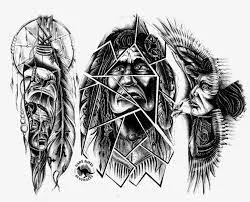
In the annals of history, the art of tattooing has held a significant and diverse role across cultures. Among these cultures, the Cherokee Nation, with its deeply rooted traditions and unique way of life, has its own captivating tale to tell.
Before the advent of the Cherokee written language, tattoos played a crucial role in Cherokee society, serving as identifiers and powerful symbols among its people. In this exclusive conversation, we delve into the world of traditional Cherokee tattoos and practices, guided by the insights of Mike Crowe, an Atsila Anotasgi Cultural Specialist at the Museum of the Cherokee Indian.
Tattoos: The Unwritten Language of Identity
Before the Cherokee people developed a written language, tattoos were the unspoken script that wove the stories of their lives. These intricate designs etched into their skin were not mere embellishments but profound markers of identity. Tattoos served as a means to recognize and distinguish one another, carrying with them the narratives of individuals and their tribes.
Warriors and Their Earned Marks
In the heart of Cherokee society, warriors occupied a revered place, and their tattoos were a testament to their valor and accomplishments. To earn these marks, warriors had to demonstrate exceptional bravery and resilience on the battlefield. Each tattoo told a story of courage and honor, a living testimony to their feats in the face of adversity.
Tattoos in Ceremonial Rites
Beyond their role as identifiers, tattoos played a vital part in Cherokee ceremonial practices. These sacred markings were imbued with spiritual significance and were an integral part of important rituals and ceremonies. They connected individuals to the spiritual realm, fostering a deep sense of belonging and reverence for their cultural heritage.
Unveiling the Mysteries: A Conversation with Mike Crowe
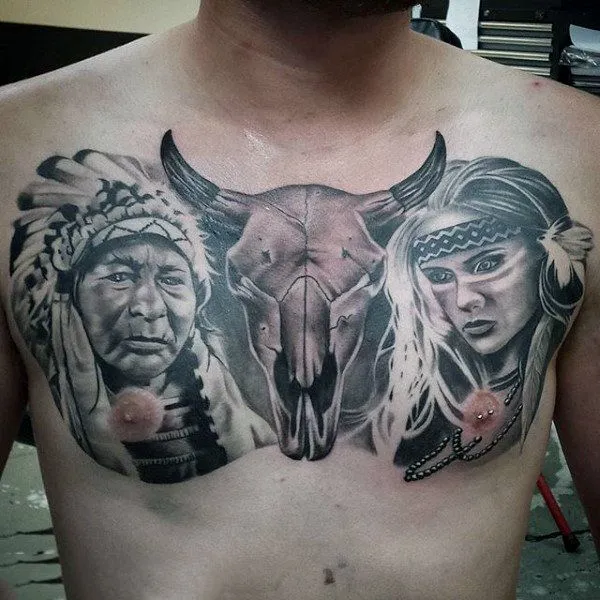
Mike Crowe, an Atsila Anotasgi Cultural Specialist at the Museum of the Cherokee Indian, stands as a guardian of Cherokee traditions and a bridge to their rich history. In our conversation with him, we had the privilege of gaining deeper insights into the intricate world of Cherokee tattoos and the cultural practices of the Eastern Band of Cherokee Indians.
Cherokee heritage, the role of tattoos as both identifiers and spiritual conduits becomes ever more profound. Cherokee tattoos were not just ink on skin; they were living testaments to bravery, honor, and spiritual connection. Through the wisdom shared by cultural specialists like Mike Crowe, we have the privilege of preserving and honoring the legacy of the Cherokee people and their remarkable tattoo traditions.
Is it OK to get a headdress tattoo?
In recent years, Native American symbols and iconography have gained popularity as tattoo designs, with one of the most notable being the Native American headdress. These striking and intricate headdresses have deep-rooted religious significance within Native American cultures.
In this exploration, delve into the profound spiritual meaning of the headdress, the importance of authorization, and the cultural sensitivity surrounding it.
A Symbol of Religious Significance
The Native American headdress, often adorned with feathers and vibrant colors, is far more than an ornate accessory; it carries profound religious meaning. Unlike symbols like the Christian cross, which are widely worn as jewelry, the headdress is reserved for specific individuals within Native American tribes.
It serves as a powerful emblem of spirituality, a connection to the divine, and an embodiment of tribal heritage.
Authorization and Permission
Within Native American communities, the right to wear a headdress is not a casual matter. It is a privilege granted to those who have been designated by tribal religious leaders. This authorization is rooted in tradition and sacred rituals, emphasizing the need for profound reverence and respect.
Without proper authorization, donning a Native American headdress becomes a significant breach of cultural boundaries.
Navigating Personal Significance
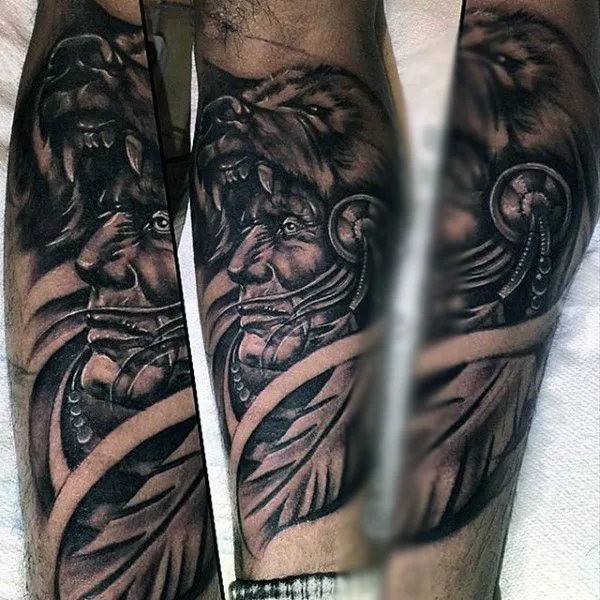
For individuals seeking to incorporate Native American symbols into their tattoos for personal reasons, it’s crucial to understand the cultural sensitivity surrounding the headdress. Even if the intent is not to disrespect but to convey personal significance or meaning, wearing a headdress tattoo can still be considered taboo. This is because it symbolizes an authorization that has not been granted.
For citizens and members of tribal nations or bands, the path forward regarding headdress tattoos is clearer. Tribal elders hold the key to understanding the appropriateness of such a tattoo within their specific cultural context. Their guidance and insight into the matter will be more relevant and tailored to your situation.
Cultural Sensitivity for All
Even if you are not a citizen or member of a tribal nation or band, showing cultural sensitivity is paramount. If you reside near a tribe that utilizes the headdress in its traditions, seeking advice from tribal elders is a respectful way to navigate this cultural landscape.
It demonstrates an earnest desire to avoid inadvertently offending others and showcases a commitment to cultural understanding.
In the realm of tattoo artistry, every symbol and design carries a story, and it’s essential to honor the narratives and traditions of Native American cultures. The headdress, with its profound spiritual significance, serves as a poignant reminder of the need for cultural sensitivity, respect, and authorization when considering it as a tattoo motif.
By seeking guidance and understanding, we can pay homage to the rich heritage of Native American communities while treading the path of cultural appreciation and respect.
Read more: What Is Native American Bull Skull Tattoos?
